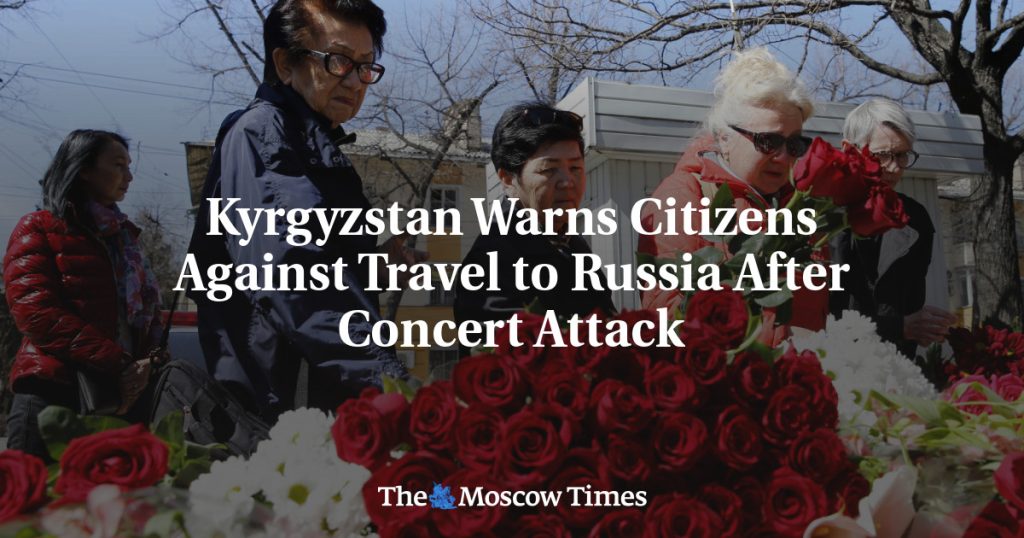The Foreign Ministry of Kyrgyzstan has issued a warning to its citizens advising against unnecessary trips to Russia following a deadly attack at a concert hall near Moscow. The ministry emphasized that Russia is implementing anti-terrorist measures, resulting in heightened entry and exit checks at the border. The Kyrgyz Embassy in Moscow also recommends avoiding travel to Russia unless necessary. This warning comes amid reports of increased police profiling of migrants from Tajikistan and other Central Asian countries, who constitute a significant portion of the migrant labor force in Russia.
While Kyrgyzstan has taken steps to caution its citizens, no other Central Asian government has issued similar warnings regarding travel to Russia. Tajikistan’s embassy in Moscow has advised its citizens to avoid crowded places, and Kazakhstan’s president has ordered increased security measures within the country. A prominent migrant rights lawyer revealed she had received over 2,500 complaints of harassment, aggression, and unlawful detention of migrants in Russia over the weekend. The heightened tensions in the region have prompted a call for increased vigilance and precaution among Central Asian migrants and their respective governments.
Russian authorities have made progress in the investigation of the attack, as they recently arrested four men suspected of being involved in the shooting at Crocus City Hall, resulting in the deaths of at least 137 people. The suspects, identified as citizens of Tajikistan, were placed in pre-trial detention on Sunday night. In response, Dushanbe has refuted the claims that its citizens were responsible for the attack, while Russian officials have only acknowledged that the four suspects are foreign nationals. The Islamic State affiliate ISIS-K has claimed responsibility for the incident and threatened to carry out more attacks in Russia following alleged reports of torture against the arrested men.
The tension surrounding the attack has prompted various responses from Central Asian countries regarding travel to Russia and the safety of their citizens. In addition to the warning issued by Kyrgyzstan, Tajikistan has advised its citizens to avoid crowded spaces, while Kazakhstan has heightened security measures within its borders. The increased scrutiny and profiling of Central Asian migrants in Russia have raised concerns about the treatment of foreign nationals in the country. The involvement of citizens from Tajikistan in the attack has led to diplomatic tensions between Dushanbe and Moscow, with conflicting claims and allegations from both sides. The threat of further attacks by extremist groups in the region has added to the apprehension and caution surrounding travel and security.
As the investigation into the attack at Crocus City Hall progresses, the focus on the suspects from Tajikistan has generated diplomatic tensions between Russia and Dushanbe. The conflicting claims and statements from both sides have contributed to the uncertainty and fear surrounding the incident and its aftermath. The threat of further attacks by ISIS-K and other extremist groups in the region has heightened concerns about safety and security in Russia and neighboring countries. The responses from Central Asian governments, including warnings to their citizens and increased security measures, reflect the seriousness of the situation and the need for vigilance and caution among the migrant population in the region. The ongoing developments in the investigation and the response to the attack highlight the complex dynamics at play in the region and the challenges posed by extremist threats and security concerns.


